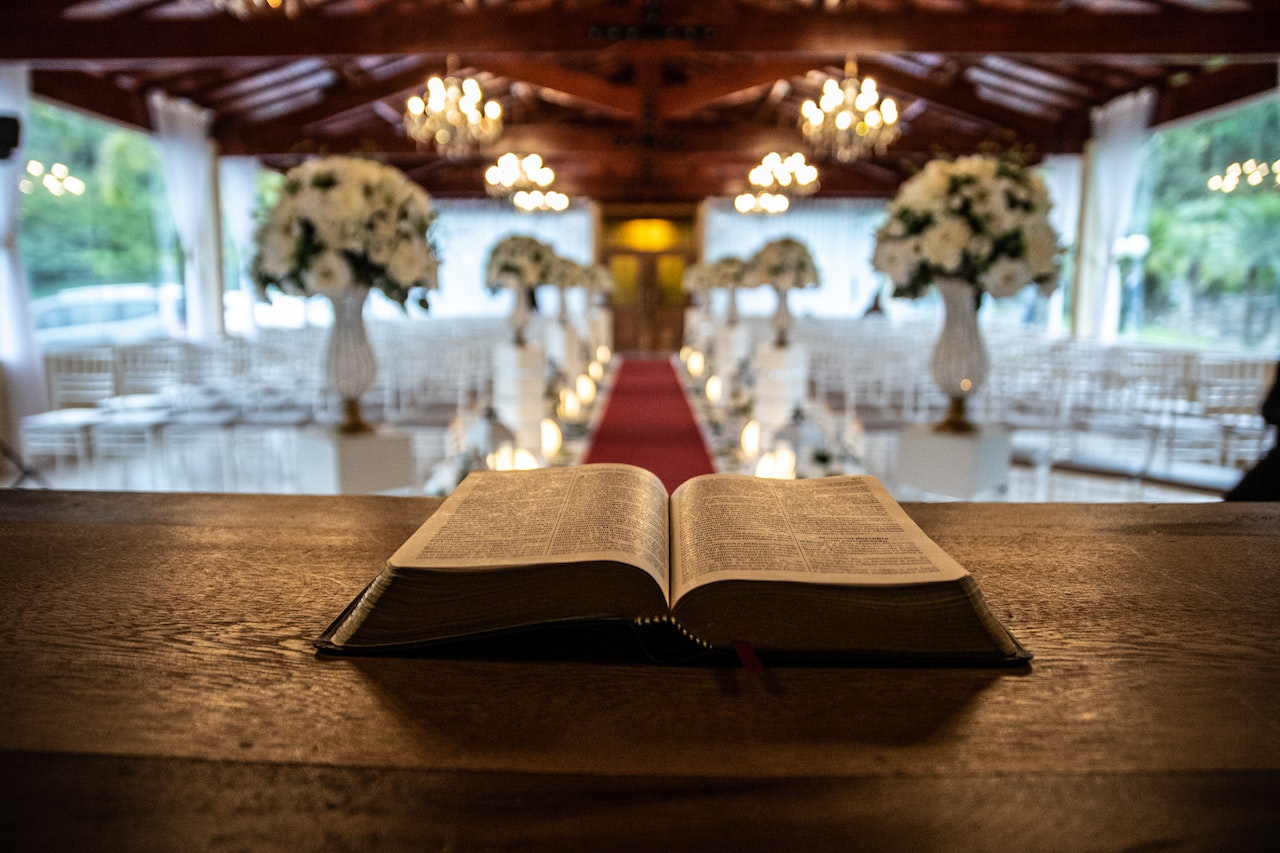Orthodox Christianity is a branch of Christianity that follows the teachings and traditions of the Eastern Orthodox Church. It is often questioned whether Orthodox individuals can marry Christians from other denominations or branches of Christianity. In this introduction, we will explore the topic of whether Orthodox individuals can marry Christians and provide a brief overview of the considerations and implications involved in such unions.
Table of Contents
The Importance of Interfaith Dialogue in Orthodox-Christian Relationships
Can Orthodox Marry Christian?
When it comes to relationships, love knows no boundaries. People from different backgrounds and beliefs often find themselves falling in love, despite their differences. One such difference that can arise in relationships is the question of religious compatibility. Specifically, can an Orthodox Christian marry a Christian from a different denomination? This is a topic that requires careful consideration and open dialogue between the couple.
Interfaith relationships can be both challenging and rewarding. They require a deep understanding and respect for each other’s beliefs. In the case of an Orthodox Christian and a Christian from another denomination, it is important to recognize the differences in their religious practices and traditions. These differences can range from the way they worship to the interpretation of certain religious texts.
Orthodox Christianity is known for its rich liturgical traditions and adherence to ancient practices. The Orthodox Church places great importance on the sacraments, such as baptism and the Eucharist. On the other hand, Christians from other denominations may have different views on these sacraments and may not follow the same rituals. This can create tension and confusion within the relationship if not addressed openly and honestly.
The key to navigating an interfaith relationship lies in open and respectful communication. Both partners must be willing to listen and learn from each other. It is important to have conversations about each other’s beliefs, attending religious services together, and discussing how to incorporate both traditions into their lives. This dialogue can help build a strong foundation of understanding and respect.
In some cases, an Orthodox Christian may choose to convert to their partner’s denomination. This decision should not be taken lightly and should be made out of genuine belief and conviction. It is crucial for the individual to fully understand the teachings and practices of their partner’s denomination before making such a decision. This can involve attending religious classes, speaking with clergy members, and engaging in personal reflection.
However, it is also important to note that conversion should never be forced or expected. Each individual has the right to practice their own faith and should not feel pressured to change their beliefs for the sake of the relationship. It is possible for an interfaith couple to maintain their own religious identities while still supporting and respecting each other’s beliefs.
Ultimately, the success of an interfaith relationship depends on the commitment and effort put into it by both partners. It requires a willingness to compromise, adapt, and grow together. Interfaith dialogue is not just important for the couple, but also for their families and communities. By engaging in open and respectful conversations, they can help bridge the gap between different religious traditions and foster understanding and acceptance.
In conclusion, the question of whether an Orthodox Christian can marry a Christian from a different denomination is a complex one. It requires open dialogue, understanding, and respect for each other’s beliefs. Interfaith relationships can be challenging, but with the right mindset and commitment, they can also be incredibly rewarding. The key is to approach the relationship with an open heart and a willingness to learn and grow together.
Understanding the Challenges and Benefits of an Orthodox-Christian Marriage

Can Orthodox Marry Christian?
When it comes to matters of the heart, love knows no boundaries. People from different backgrounds and religions often find themselves falling in love and wanting to spend their lives together. However, when it comes to marriage, there can be challenges and obstacles to overcome, especially when two individuals come from different religious backgrounds. One such scenario is when an Orthodox person wants to marry a Christian. In this article, we will explore the challenges and benefits of an Orthodox-Christian marriage, shedding light on this unique situation.
First and foremost, it is important to understand the differences between Orthodox and Christian beliefs. Orthodox Christianity is deeply rooted in tradition and follows the teachings of the Eastern Orthodox Church. On the other hand, Christianity encompasses a wide range of denominations, each with its own set of beliefs and practices. While both Orthodox and Christian faiths share a belief in Jesus Christ, there are differences in liturgical practices, sacraments, and theological interpretations.
One of the main challenges that arise in an Orthodox-Christian marriage is the question of religious practices and traditions. Orthodox Christians have a rich liturgical tradition, with specific rituals and sacraments that are an integral part of their faith. These practices may differ significantly from those of other Christian denominations. It is crucial for both partners to have open and honest discussions about their religious expectations and how they plan to navigate these differences in their married life.
Another challenge that may arise is the question of raising children. In an Orthodox-Christian marriage, the couple may have to decide which religious traditions and practices they want to pass on to their children. This can be a sensitive topic, as both partners may have strong beliefs and desires for their children’s religious upbringing. It is essential for the couple to find common ground and establish a plan that respects both faiths while providing a stable and nurturing environment for their children.
Despite the challenges, an Orthodox-Christian marriage can also bring about many benefits. One of the most significant advantages is the opportunity for spiritual growth and learning. Both partners can gain a deeper understanding and appreciation for each other’s faith, leading to a more profound connection and a broader perspective on spirituality. This shared journey can strengthen their bond and create a unique and enriching marital experience.
Additionally, an Orthodox-Christian marriage can serve as a bridge between two religious communities. By coming together in love and understanding, the couple can foster dialogue and promote unity between Orthodox and Christian believers. Their marriage can be a testament to the power of love and acceptance, inspiring others to embrace diversity and find common ground in their own relationships.
In conclusion, an Orthodox person can indeed marry a Christian, but it is not without its challenges. Open communication, respect for each other’s beliefs, and a willingness to compromise are essential for a successful Orthodox-Christian marriage. While there may be differences in religious practices and the upbringing of children, these challenges can be overcome with love, understanding, and a shared commitment to building a strong and harmonious relationship. Ultimately, an Orthodox-Christian marriage can be a beautiful union that celebrates diversity and strengthens the bonds of love and faith.
Navigating Religious Differences in an Orthodox-Christian Relationship
Can Orthodox Marry Christian?
Navigating Religious Differences in an Orthodox-Christian Relationship
When it comes to love, they say that opposites attract. And sometimes, those opposites can be found in the realm of religion. If you find yourself in an Orthodox-Christian relationship, you may be wondering if it’s possible for the two of you to tie the knot. Well, the answer is not as straightforward as you might think.
Orthodox Christianity, with its rich traditions and deep-rooted beliefs, can sometimes clash with other Christian denominations. This can create challenges when it comes to interfaith relationships. However, it’s important to remember that love knows no boundaries, and with open communication and understanding, it is possible to make it work.
One of the first things to consider is the level of devotion to your respective faiths. If both partners are deeply committed to their own religious practices, it can be more difficult to find common ground. However, if one or both partners are more open-minded and willing to compromise, there is hope for a successful relationship.
It’s also important to have open and honest conversations about your beliefs and how they may impact your future together. Discussing topics such as how you will raise your children, celebrate holidays, and handle religious ceremonies can help you navigate potential conflicts before they arise.
In some cases, couples may choose to have a dual religious ceremony, incorporating elements from both Orthodox Christianity and the other Christian denomination. This can be a beautiful way to honor both partners’ beliefs and create a sense of unity. However, it’s important to consult with religious leaders from both faiths to ensure that the ceremony is respectful and in line with their teachings.
Another option is for one partner to convert to the other’s faith. While this can be a deeply personal decision, it should never be done out of pressure or coercion. True conversion should come from a genuine belief and desire to embrace the teachings and practices of the other faith.
If conversion is not an option, it’s important to find ways to support and respect each other’s beliefs. This may mean attending separate religious services or finding a compromise that allows both partners to practice their faiths in a way that feels authentic to them.
Ultimately, the success of an Orthodox-Christian relationship depends on the individuals involved. It requires open-mindedness, respect, and a willingness to compromise. It’s important to remember that love is a powerful force that can overcome even the most challenging obstacles.
In conclusion, while navigating religious differences in an Orthodox-Christian relationship can be challenging, it is not impossible. With open communication, understanding, and a willingness to compromise, it is possible for two people from different faiths to build a strong and loving relationship. Love knows no boundaries, and with the right mindset, anything is possible. So, if you find yourself in an Orthodox-Christian relationship, don’t lose hope. Embrace the differences, celebrate the similarities, and let love guide you on this beautiful journey together.
Exploring the Role of Tradition and Faith in Orthodox-Christian Marriages
Can Orthodox Marry Christian?
When it comes to matters of the heart, religion can often play a significant role. For those who are deeply rooted in their faith, finding a partner who shares the same beliefs and values is of utmost importance. But what happens when two individuals from different religious backgrounds fall in love? Specifically, can an Orthodox Christian marry a Christian from another denomination? Let’s explore the role of tradition and faith in Orthodox-Christian marriages.
Orthodox Christianity, with its rich history and deep-rooted traditions, has a unique perspective on marriage. In the Orthodox Church, marriage is considered a sacrament, a sacred union blessed by God. It is seen as a lifelong commitment between a man and a woman, with the ultimate goal of spiritual growth and salvation. This perspective places a great emphasis on the importance of marrying within the Orthodox faith.
However, this does not mean that an Orthodox Christian cannot marry someone from a different Christian denomination. The Orthodox Church recognizes the validity of other Christian sacraments and acknowledges the shared beliefs and values that exist among various Christian traditions. In fact, the Church encourages interfaith dialogue and understanding, recognizing that love and respect can transcend religious differences.
That being said, an Orthodox-Christian marriage does come with its challenges. The couple must navigate the differences in religious practices and traditions, finding a balance that respects both partners’ beliefs. This can be particularly challenging when it comes to raising children, as the couple must decide which religious traditions to pass on to their offspring.
In some cases, an Orthodox Christian may choose to convert to their partner’s Christian denomination. This decision should not be taken lightly, as it involves a deep examination of one’s faith and a willingness to embrace a new religious identity. It is important for both partners to have open and honest conversations about their beliefs and expectations before making such a life-altering decision.
On the other hand, some couples may choose to maintain their separate religious identities while still finding ways to support and respect each other’s faith. This can involve attending religious services together, participating in each other’s religious rituals, and finding common ground in shared values and beliefs.
Ultimately, the success of an Orthodox-Christian marriage depends on the couple’s commitment to open communication, mutual respect, and a shared understanding of the importance of faith in their lives. It requires a willingness to compromise and find common ground, while still honoring the traditions and teachings of their respective religious backgrounds.
In conclusion, while an Orthodox Christian marrying a Christian from another denomination may present its challenges, it is not an impossible feat. The key lies in open communication, respect, and a shared commitment to faith. Love knows no religious boundaries, and with understanding and compromise, an Orthodox-Christian marriage can thrive, embracing the beauty of both traditions and strengthening the bond between two individuals who have found love in the midst of their religious differences.
Conclusion
In conclusion, it is possible for an Orthodox individual to marry a Christian, but it may require certain considerations and discussions with religious authorities to ensure compatibility and adherence to respective religious traditions.
For licensing reasons, we must provide the following notice: This content was created in part with the help of an AI.


